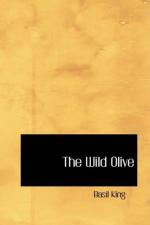For the first time since the night of his escape there came back to him that vague feeling of deserting something he might have defended, that almost physical sensation of regret at not having stood his ground and fought till he fell. He began to understand now what it meant. Dip, splash, dip, splash, his paddle stirred the dimly shining water, breaking into tiny whirlpools the tremulous reflection of the stars. Not for an instant did he relax his stroke, though the regret took more definitive shape behind him. Convicted and sentenced, he was still part of the life of men, just as a man whom others are trying to hurl from a tower is on the tower till he has fallen. He himself had not fallen; he had jumped off, while there was still a chance of keeping his foothold.
It required an hour or two of outward rhythmic movement and confused inward feeling to get him ready for his next mental step. He had jumped off the tower; true; but he was alive and well, with no bones broken. What should he do now? Should he try to tear the tower down? The attempt would not be so very ludicrous, seeing he should only have to join those—socialists, anarchists, faddists—already at the work. But he admired the tower, and preferred to see is stand. If he did anything at all, it would be to try to creep back into it.
The reflection gave still another turn to his thoughts. He was passing Burlington by this time—the electric lamps throwing broad bands of light along the deserted, up-hill streets, between the sleeping houses. It was the first city he had seen since leaving New York to begin his useless career in the mountains. The sight moved him with an odd curiosity, not free from a homesick longing for normal, simple ways of life. He kept the canoe at a standstill, looking hungrily up the empty thoroughfares, as a poor ghost may gaze at familiar scenes while those it has loved are dreaming. By-and-by the city seemed to stir in its sleep. Along the waterside he could hear the clatter of some belated or too early wayfarer; a weird, intermittent creaking told him that the milk-cart of provincial towns was on its beat; from a distant freight-train came the long, melancholy wail that locomotives give at night; and then drowsily, but with the promptness of one conscientious in his duty, a cock crew. Ford knew that somewhere, unseen as yet by him, the dawn was coming, and—again like a wandering ghost—sped on.
But he had been looking on the tower which the children of men had builded, and had recognized his desire to clamber up into it again. He was not without the perception that a more fiery temperament than his own—perhaps a nobler one—would have cursed the race that had done him wrong, and sought to injure it or shun it. Misty recollections of proud-hearted men who had taken this stand came back to him.
“I suppose I ought to do the same,” he muttered to himself humbly; “but what would be the use when I couldn’t keep it up?”




